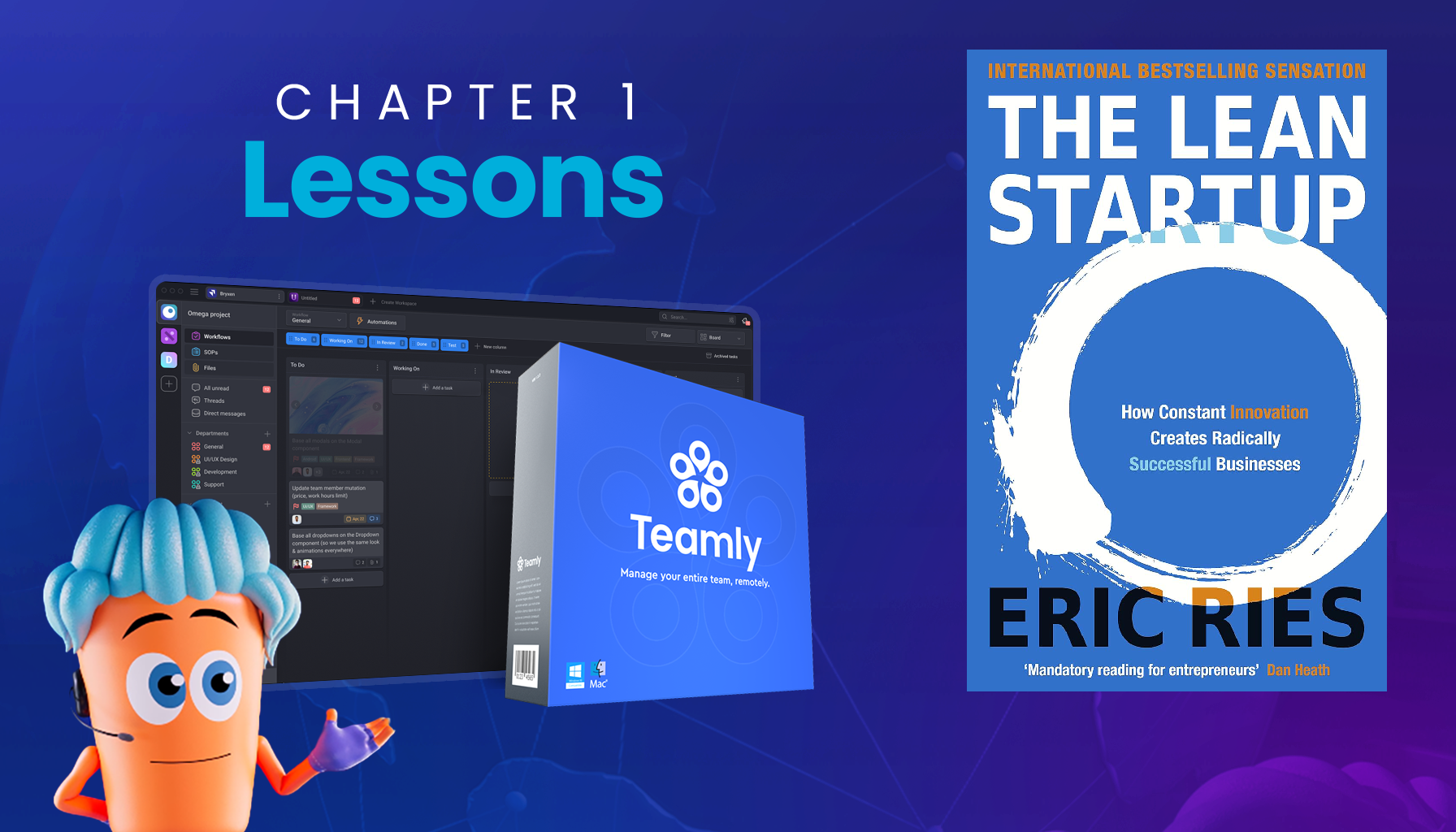
Click the button to start reading
Lessons from The Lean Startup By Eric Ries: Chapter 1
Startups are unique beasts. Unlike traditional companies, they operate in an environment defined by chaos and uncertainty.
In Chapter 1 of The Lean Startup, Eric Ries introduces a revolutionary way of thinking about management in startups. His core argument? Entrepreneurship requires a new discipline: entrepreneurial management.
Traditionally, companies have relied on general management principles to drive success. While effective for established institutions, these methods often fail startups, where experimentation and agility are the lifeblood of growth.
By introducing a new framework tailored to the needs of startups, Ries equips entrepreneurs with the tools to manage uncertainty and harness opportunity. Unlike conventional business structures, startups thrive on speed, risk-taking, and adaptability.
These qualities, while exciting, often lead to a “just do it” mindset where actions are taken without a guiding system. This chaos can turn into inefficiency or failure without a clear framework, which is where entrepreneurial management shines.

Learning Milestones: A Different Kind of Productivity
Ries challenges startups to rethink how they measure success.
Traditional productivity metrics—hours worked, code written, or features delivered—may seem tangible, but they miss the mark in entrepreneurial contexts. Startups often build products no one wants, wasting valuable time and resources.
Instead, Ries encourages teams to prioritize “learning milestones.” By focusing on customer insights and iterative progress, startups can determine what to build and why.
The process is more intangible than traditional methods, but it ensures that every action moves the company closer to creating a product customers will pay for.
This approach aligns productivity with meaningful progress. It’s no longer about the number of tasks completed in a day but about how much closer the team is to uncovering customer needs and developing viable solutions.
By embracing this mindset, startups can ensure that every effort contributes to their long-term vision.
The implications of this shift in productivity measurement are profound. Teams must unlearn old habits of valuing tangible outputs over intangible learnings.
It’s uncomfortable at first, but the payoff is enormous—a leaner, smarter startup that avoids unnecessary waste and stays laser-focused on value creation.

The Build-Measure-Learn Feedback Loop
At the heart of the Lean Startup methodology is the Build-Measure-Learn feedback loop.
This cycle encourages startups to build minimally viable products (MVPs), measure their performance, and learn from the results.
The insights gained from each iteration guide the next step, whether that means refining the product or pivoting to a new strategy.
Ries contrasts this approach with the traditional “rocket ship” mindset, where every detail is planned in advance. Startups that rigidly follow business plans often find themselves unable to adapt when their assumptions prove incorrect.
The Lean Startup, by contrast, empowers teams to navigate uncertainty and make data-driven decisions at every turn.
Imagine a startup as a car navigating a long and winding road.
The Build-Measure-Learn loop acts as the steering wheel, allowing teams to adjust their course in real time based on feedback. Unlike rigid plans, this method ensures the team can respond effectively to unexpected challenges, detours, and opportunities.
Vision, Strategy, and Product
Every startup needs a guiding light, and Ries calls this the “true north.” The vision represents the ultimate goal of creating a transformative business.
Achieving that vision requires a well-defined strategy—a roadmap that includes the business model, partnerships, and customer insights. The product, meanwhile, is the tangible result of this strategy.
While products and strategies may evolve, the overarching vision remains constant. Entrepreneurs must remain committed to their vision, using each setback as an opportunity to learn and recalibrate.
Whether through optimization or pivoting, the goal is to stay aligned with the destination while remaining flexible in the journey.
This concept resonates deeply with teams looking to stay agile without losing sight of their goals.
Vision ensures the team knows where they’re going, while strategy and products offer the tools to get there. It’s a delicate balance that requires discipline and a willingness to embrace change.

Balancing the Portfolio of Activities
Ries emphasizes that startups are, at their core, portfolios of activities. Teams must simultaneously acquire customers, improve products, and decide when to pivot.
Balancing these competing priorities is no small task, but it’s essential for success.
This insight is particularly relevant to users of Teamly software. By leveraging Teamly’s project management tools, startups can track tasks across multiple domains, ensuring that no aspect of the business is overlooked.
From customer acquisition to product development, Teamly helps teams stay organized and focused on what matters most.
Entrepreneurs face the challenge of keeping the “engine of growth” running while steering the company through constant uncertainty. Balancing existing customer needs with the pursuit of innovation requires thoughtful planning and execution.
Tools like Teamly make this balancing act more manageable by providing visibility into every part of the business.

Entrepreneurship is Management
The final insight from Chapter 1 is a profound one: entrepreneurship is management. For too long, startups have shunned traditional management practices, viewing them as obstacles to creativity and innovation.
But Ries argues that startups need a new kind of management—one that embraces uncertainty and treats failure as a stepping stone to success.
In larger organizations, this philosophy can empower intrapreneurs—internal innovators tasked with driving change.
By adopting Lean Startup principles, companies can create an environment where experimentation thrives, and innovation becomes a repeatable process.
Failure, in this context, is not a dead end but a valuable source of information. By learning from missteps, startups and intrapreneurs alike can refine their strategies and ultimately deliver groundbreaking solutions.
It’s a mindset shift that transforms failure into a critical component of long-term success.

To explore these ideas in greater depth, grab your copy of The Lean Startup on Amazon.
















